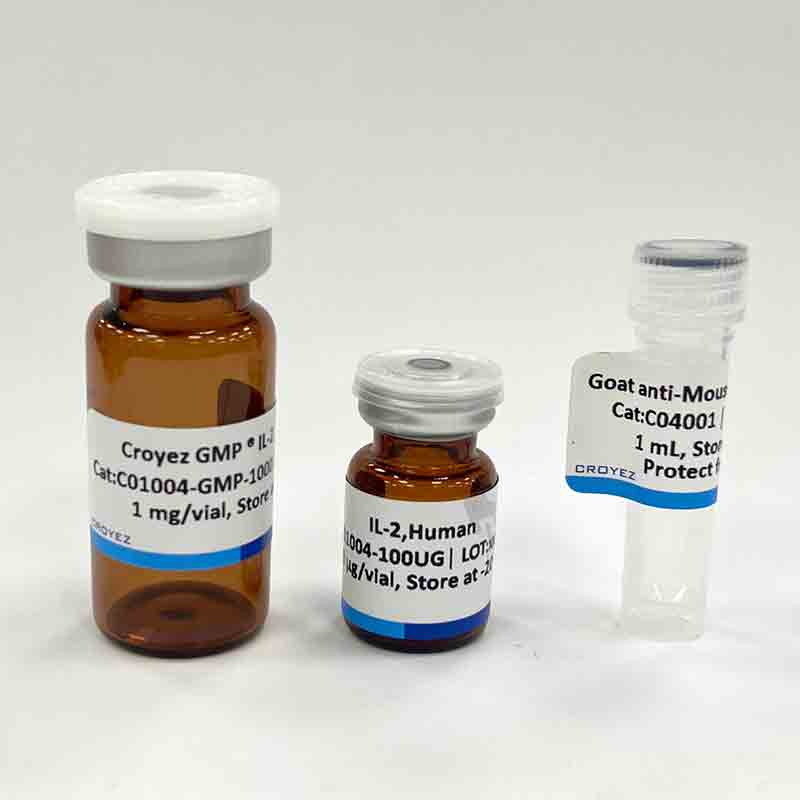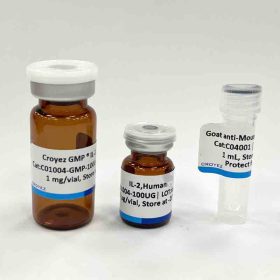Interleukin 3 is an interleukin, a type of biological signal (cytokine) that can improve the body’s natural response to disease as part of the immune system. It acts by binding to the interleukin-3 receptor. Interleukin 3 stimulates the differentiation of multipotent hematopoietic stem cells into myeloid progenitor cells or, with the addition of IL-7, into lymphoid progenitor cells. In addition, IL-3 stimulates proliferation of all cells in the myeloid lineage (granulocytes, monocytes, and dendritic cells), in conjunction with other cytokines, e.g., Erythropoietin (EPO), Granulocyte macrophage colony-stimulating factor (GM-CSF), and IL-6. It is secreted by basophils and activated T cells to support growth and differentiation of T cells from the bone marrow in an immune response.
Sequence:
MAPMTQTTSLKTSWVNCSNMIDEIITHLKQPPLPLLDFNNLNGEDQDILMENNLRRPNLEAFNRAVKSLQNASAIESILKNLLPCLPLA
TAAPTRHPIHIKDGDWNEFRRKLTFYLKTLENAQAQQTTLSLAIF with polyhistidine tag at the C-terminus
Source:
Escherichia coli
Endotoxin Test:
<0.1 EU per 1 μg of the protein by the LAL method.
Activity:
Measure by its ability to induce TF-1 cells proliferation. The ED50 for this effect is <0.15 ng/mL. The specific activity
of recombinant human IL-3 is approximately >1.2 x 106 IU/mg.
Purity:
>98% as determined by SDS-PAGE. Ni-NTA chromatography
Formulation:
The protein was lyophilized from a solution containing 1X PBS, pH 8.0.
Reconstitution:
It is recommended to reconstitute the lyophilized protein in sterile H2O to a concentration not less than 100 μg/mL
and incubate the stock solution for at least 20 min to ensure sufficient re-dissolved.
Storage:
Lyophilized protein should be stored at -20°C. Upon reconstitution, protein
aliquots should be stored at -20°C or -80°C.
Note:
Please use within one month after protein reconstitution.





